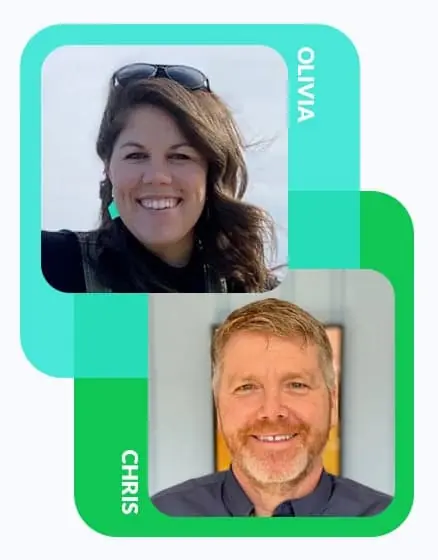Jessie Mahr, Director of Technology at Environmental Policy Innovation Center (EPIC), has dedicated her career to all things wetland. She believes better technology and better data are the keys to impactful environmental decision-making.
Jessie Mahr realized the extent of the limitations of outmoded technology and field data during graduate school, where she studied environmental policy and water resource engineering: “There had to be a better way to do this.”
She was studying wetland restoration projects, determining how to site them for maximum benefit. To do this, she said, she needed “really good data”---about wetland locations, impacts, current land use, and regional specifics. “Each of the datasets were at least 10-15 years out of date,” said Mahr. “Some of them were 50 some years old. Alaska isn't even mapped.” This was her ‘aha' moment: “We don't have good data to inform and scientifically drive where we should be doing some of the most impactful work related to wetland restoration and conservation.”
Her research involved a large GIS model on prime locations for wetland restoration, which wove in current wetland locations, impacts, and areas that needed more stormwater management or support for coastal flooding. It also entailed fieldwork, for which Mahr visited existing restoration projects in Massachusetts, where she was based, to track developments at the site.
Then, during another bout of graduate fieldwork, she encountered yet more technological roadblocks, lugging an umbrella alongside her laptop and a USB cord into the field to extract data from remote monitors. “There had to be a better way to do this,” she said.
Mahr's path led her from fieldwork to a technology company, where she was able to apply satellites for use on environmental projects. Her efforts to share the technology within the environmental community were met with skepticism.
At Upstream Tech, Mahr employed satellite imagery to monitor large landscapes, where she considered their applications for wetlands. Satellites offered a lot, she realized, but weren't a one-size-fits-all solution, and drones could complement their efforts.
She was excited to educate stakeholders on what type of information and technology would fit their restoration design and project needs, but quickly hit some barriers: people didn't know what the technology was, and they were skeptical of her. “There was a real dearth of information in the wetland community and environmental community, writ large, around when emerging or established or innovative technologies could be useful,” Mahr said. When she was able to have those conversations, she discovered that “maybe one district or state was trying something, but there was no cross-sharing and there wasn't consistency in terms of when and how this information could be applied.” She found that perceived regulatory barriers often shut down the conversation entirely.
“At that point, I thought, where could better policy or process or folks with a technology background be helpful in making use of innovative tools for environmental decision-making.
Confident that technology and innovation could revolutionize environmental policy, decision-making, and processes, Mahr ended up at EPIC.
“At EPIC, what we think about all day is ‘what are the tools, people, processes, regulations changes that are necessary to complement environmental decision-making and complement our use of technology?” said Mahr.
Her list of things to look forward to in the coming years includes:
- Availability of up-to-date information on wetlands locations across the U.S.
- Acoustic monitoring to hear the sites and sounds of restoration
- EDNA to track what is there if we can't necessarily see it
- Increased public access to information, so data isn't siloed within one consulting company or agency or one company.
“Some are hard, some are easy, but I think within the next five years we'll see a lot of progress on the technology front. I see a lot of value in technology complementing our restoration work.”



